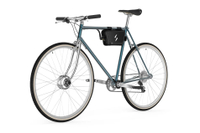I spent three months testing this e-bike conversion kit — and it turned me into an actual cyclist
The Swytch Go did its job a bit too well
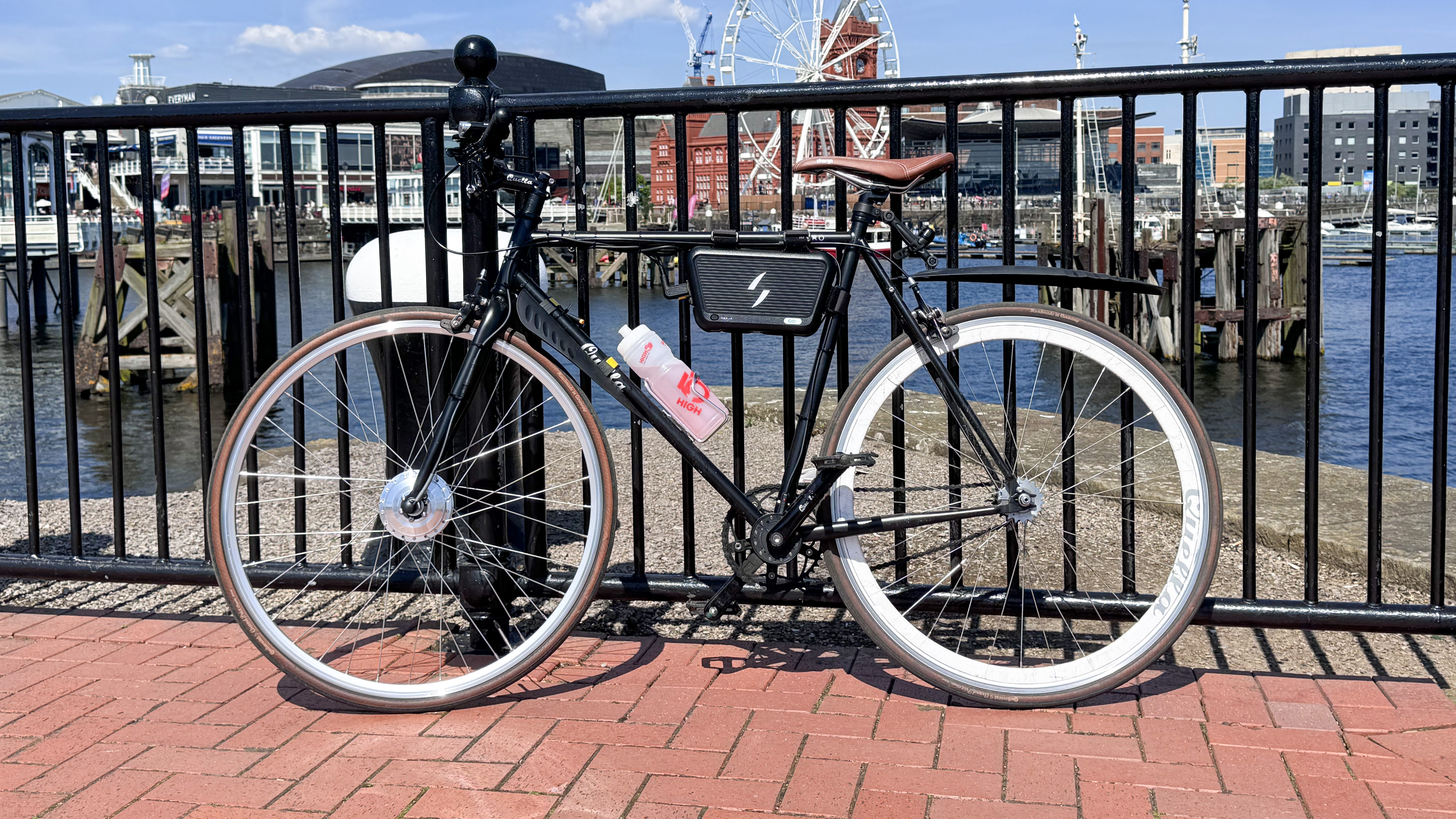
As Reviews editor here at Tom’s Guide, I get to try out all kinds of tech, but I’ll admit I was particularly excited when Swytch offered me their latest e-bike conversion kit for testing, the Swytch Go ($349), which can turn any bike into a fully functioning e-bike with just a few tools and about an hour of your time. See, while I love my bicycle, as a single-speed it isn’t the easiest thing to ride, so I was hoping that turning it into one of the best electric bikes would solve some of the headaches and let me enjoy cycling more.
We’ve already covered the conversion kit in our Swytch Go review, where we rated it very highly. It’s a great bit of tech that’s easy to use and gives you all the benefits of an e-bike from a reliable and trusted brand, without a huge expenditure. You can use the bike you love and even breathe new life into one that has perhaps lacked the TLC it deserves.
I took the Swytch Go for a long term review, to see how it fared as an everyday workhorse over time. Long story short, I love it. It isn’t perfect, and a few aspects have started to get on my nerves after a few months. On the whole, though, it’s done its job admirably, rekindled my love for cycling and, as counterintuitive as it may sound, helped me get fitter.
Here are my thoughts after 3 months with the Swytch Go.
Swytch Go: starts at $349 from Swytch
Electrify any bike with the Swytch Go e-bike conversion kit, which features a 250W motor and 378kWh battery, giving a range of up to 40 miles.
The best of both worlds
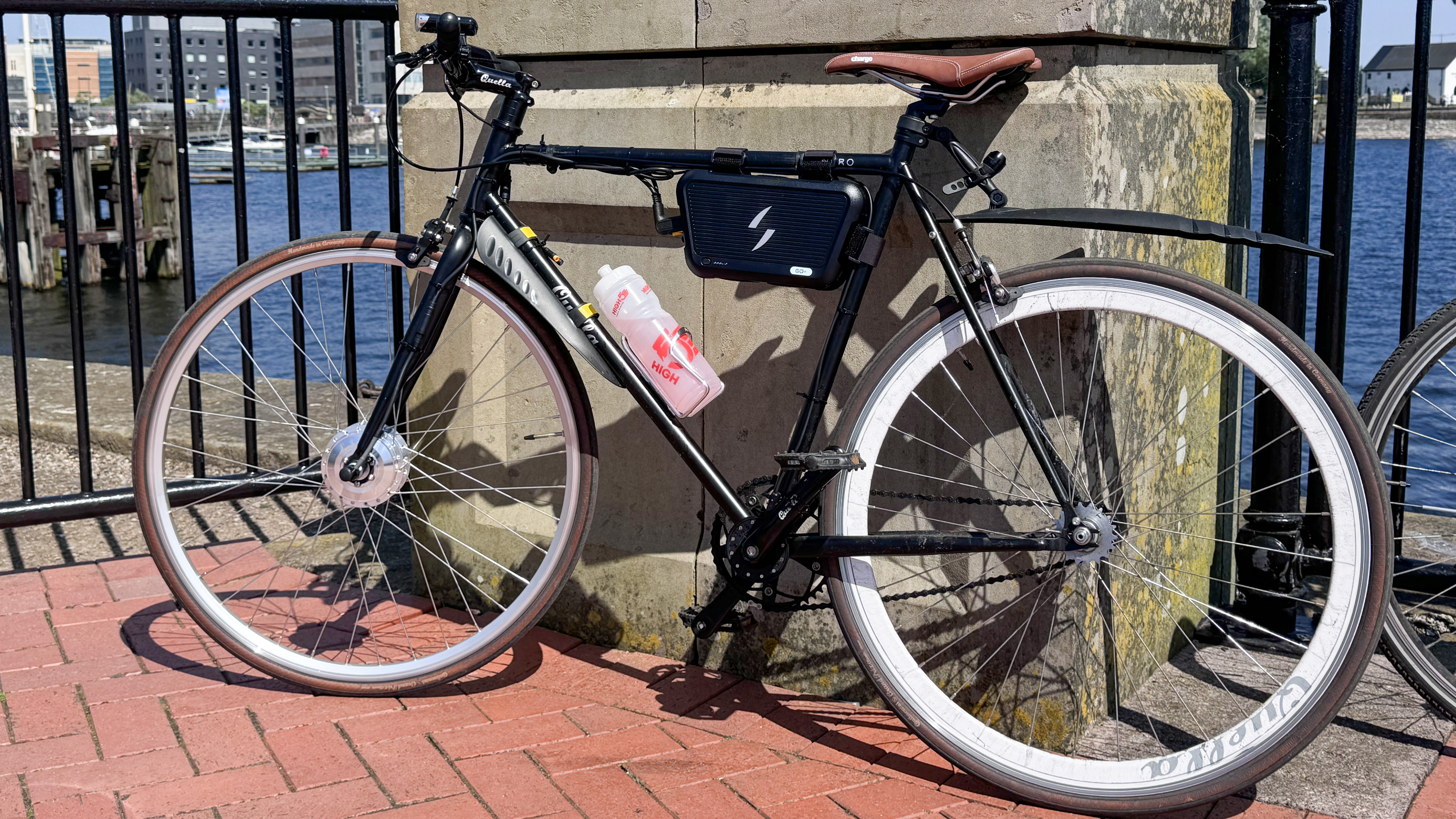
Exactly as I hoped, the Swytch Go has solved all of the issues I had with my pre-conversion bike. My £400 (about $525) Quella Nero is a single-speed, which in hindsight was a misguided purchase. If you’ve ever ridden a single-speed of fixed-gear, you’ll know you need the quads of Hercules to get up hills, and a good dose of stamina for everyday riding, too. My quads weren’t (and still aren’t) god-like — and the less said of my historical stamina levels the better — making the bike a chore to ride. This was particularly troublesome for commuting. Arriving at the office red-faced and sweaty is not an ideal start to a working day.
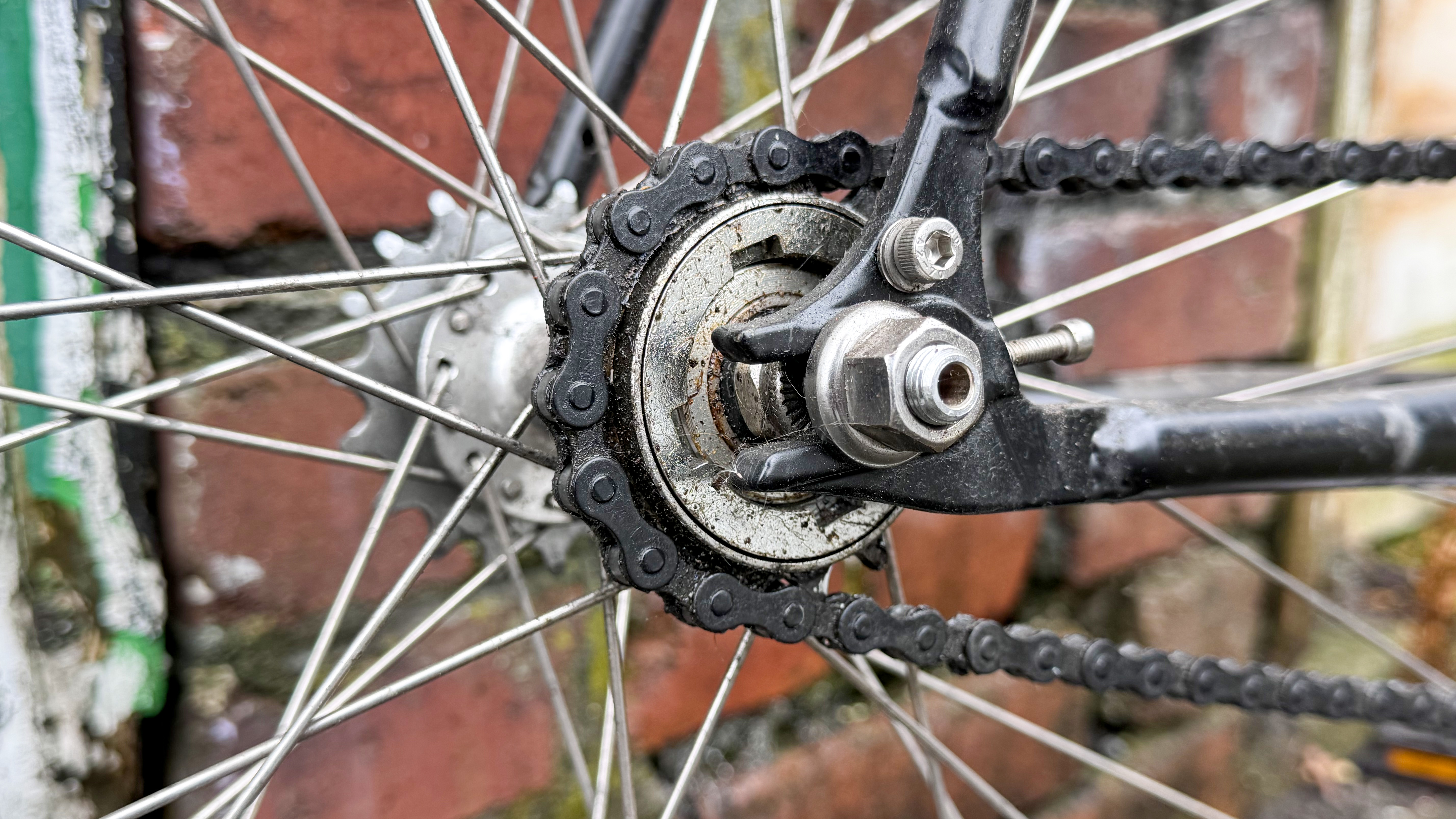
With the Swytch Go, I get to have my cake and eat it. As with any e-bike, hills are a breeze and I can arrive at work fresh and sweat-free. But I love still having my original bike underneath. Many e-bikes (including a folding e-bike parked in my garage) feature a gear ratio designed to top out at the U.K.’s maximum pedal-assist speed limit of 15.5mph. This can feel very limiting in general, but especially in moving traffic. I love having the instant power and torque of the electric motor, combined with a higher top speed enabled by my original bike’s longer gear ratio.
All these benefits have made me more inclined to get out on my bike just for fun. My partner and I have even started going on pleasure rides, something we’d never have done before. E-bike life is awesome!
Sign up to get the BEST of Tom's Guide direct to your inbox.
Get instant access to breaking news, the hottest reviews, great deals and helpful tips.
Pedal assist and fitness can coexist
A less expected benefit, at least in my eyes, is that the Swytch Go has proven to be great for exercising. This took me by surprise: I assumed, perhaps naively, that pedal-assist cycling and exercise were diametric opposites. Not so.
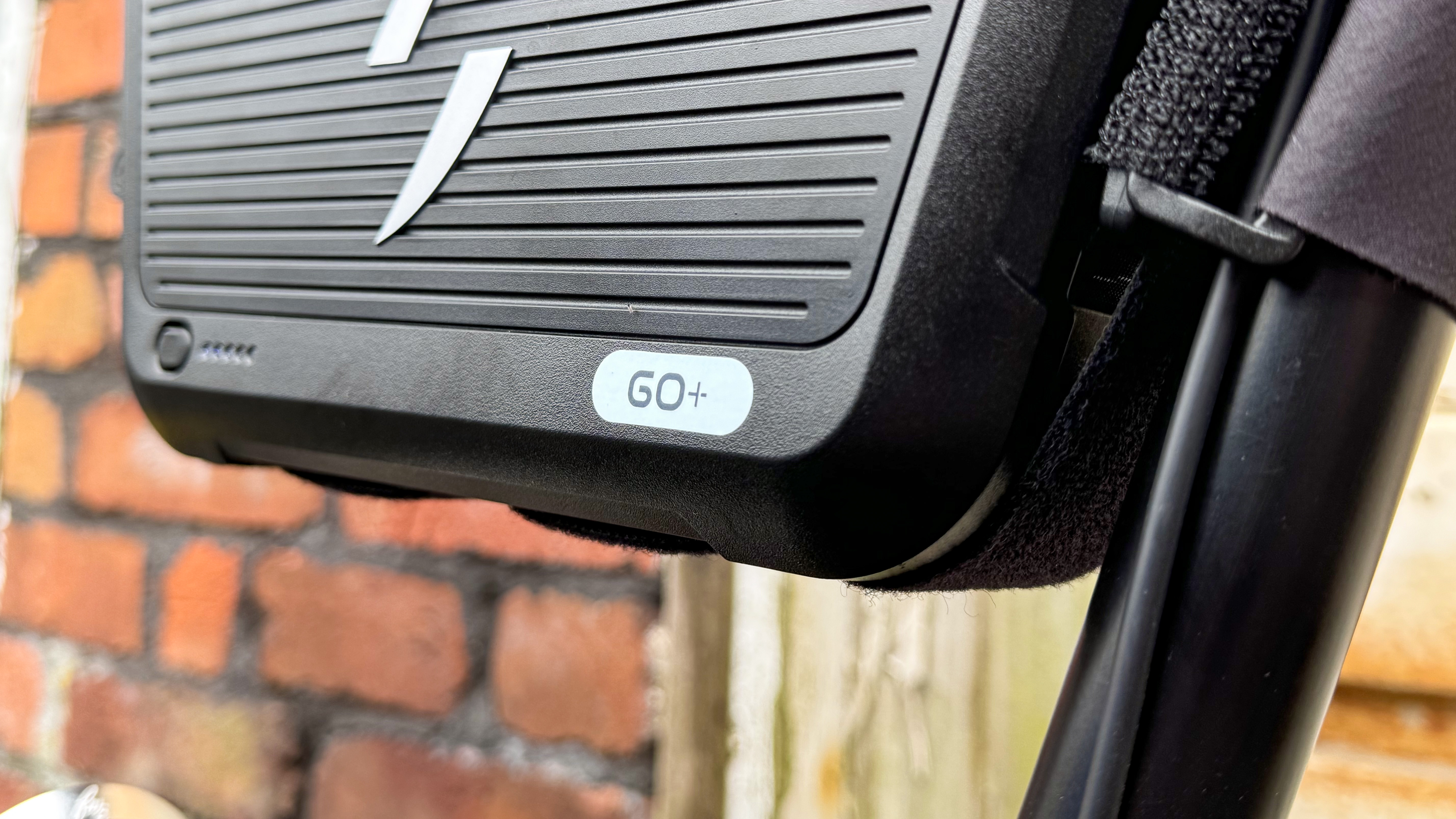
The Go comes with five levels of pedal assist. Low levels of assist can act as pseudo gears on my otherwise single-geared bike, to help with hills but not remove all the effort. I’ve also found the pedal assist levels great for stepping up my exercise in a reasonable manner. My bike was originally all-or-nothing, which I wasn’t ready or fit enough for.
Stepping down the pedal assist gradually over the last few months has helped me increase my workout intensity and start to get fitter at a pace which works for me.
That battery, though
All that said, while the Swytch Go is fantastic, I still have a few bugbears which didn’t bother me at first, but have started to grate long term. The first is its battery. I live in a city where bike theft is so rampant as to effectively be decriminalized. If your bike isn’t stolen after an hour in the city center, it’ll have had as many parts removed from it as possible.
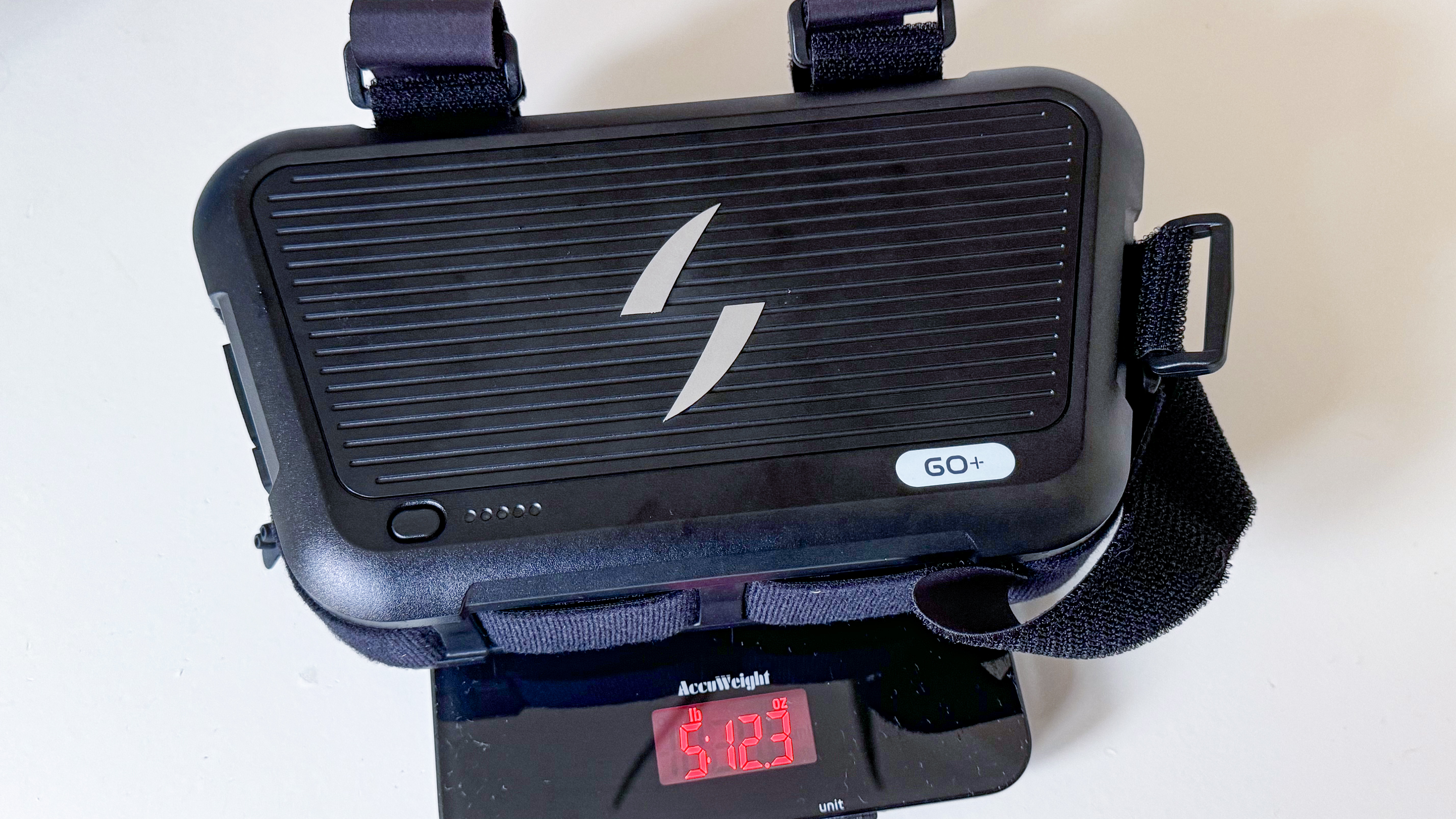
This necessitates removing the battery when parking anywhere but home or at the office, and then lugging it around. And it isn’t a lightweight battery by any means, weighing 5.75lbs (over 2kg). It’s also large — my partner asked me why I was weighing a printer as I took the scales shot above. This is something I’ve had to learn through experience, but if I had the choice again I’d opt for the more portable Swytch Air, which features a smaller battery about the size of a power bank that clips to handlebars.
There is of course the benefit of added range with the larger Swytch Go battery, but I’ve never found myself getting anywhere close to the 40-mile maximum range between charges. The 15-or-so miles max range of the Air would be more than enough for my commute.
Knockable controls
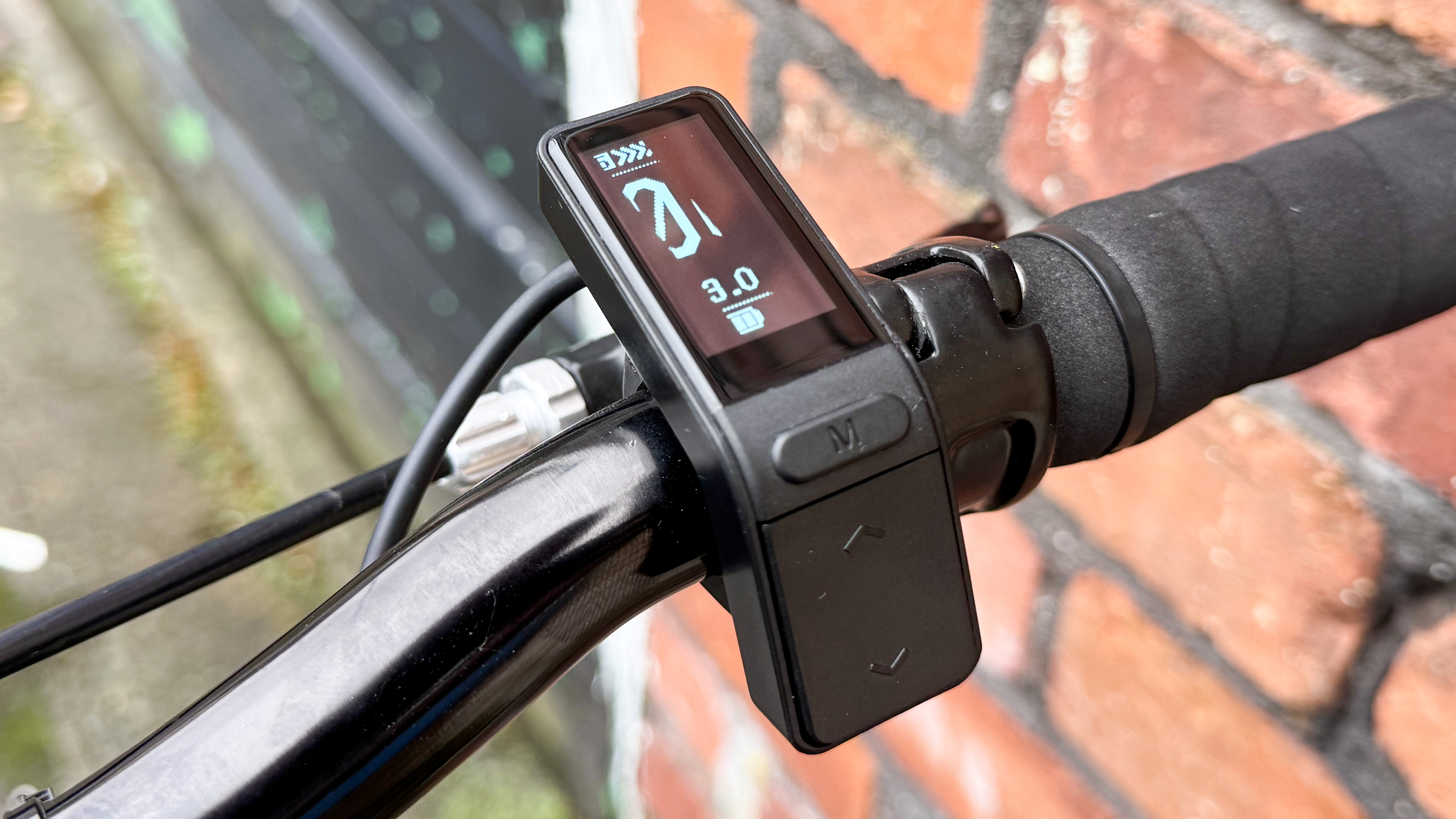
My Swytch Go kit came with an OLED digital display that clips to handlebars and can be used to view battery, miles covered, speed, as well as controlling the pedal assist level. Make no mistake, this display is extremely useful, but I’ve found it incredibly easy to knock while riding. This has usually resulted in me inadvertently stepping down the pedal assist, which is frustrating, but also a little dangerous when you need to get a quick start off the line — in traffic, for example.
Hardly inconspicuous
While I paid little attention to the looks of the Swytch Go at first, focusing more on functionality over form, the design has started grating on me more and more over time. I bought my bike in large part because of how it looks, and that’s been effectively nerfed by the Swytch Go.
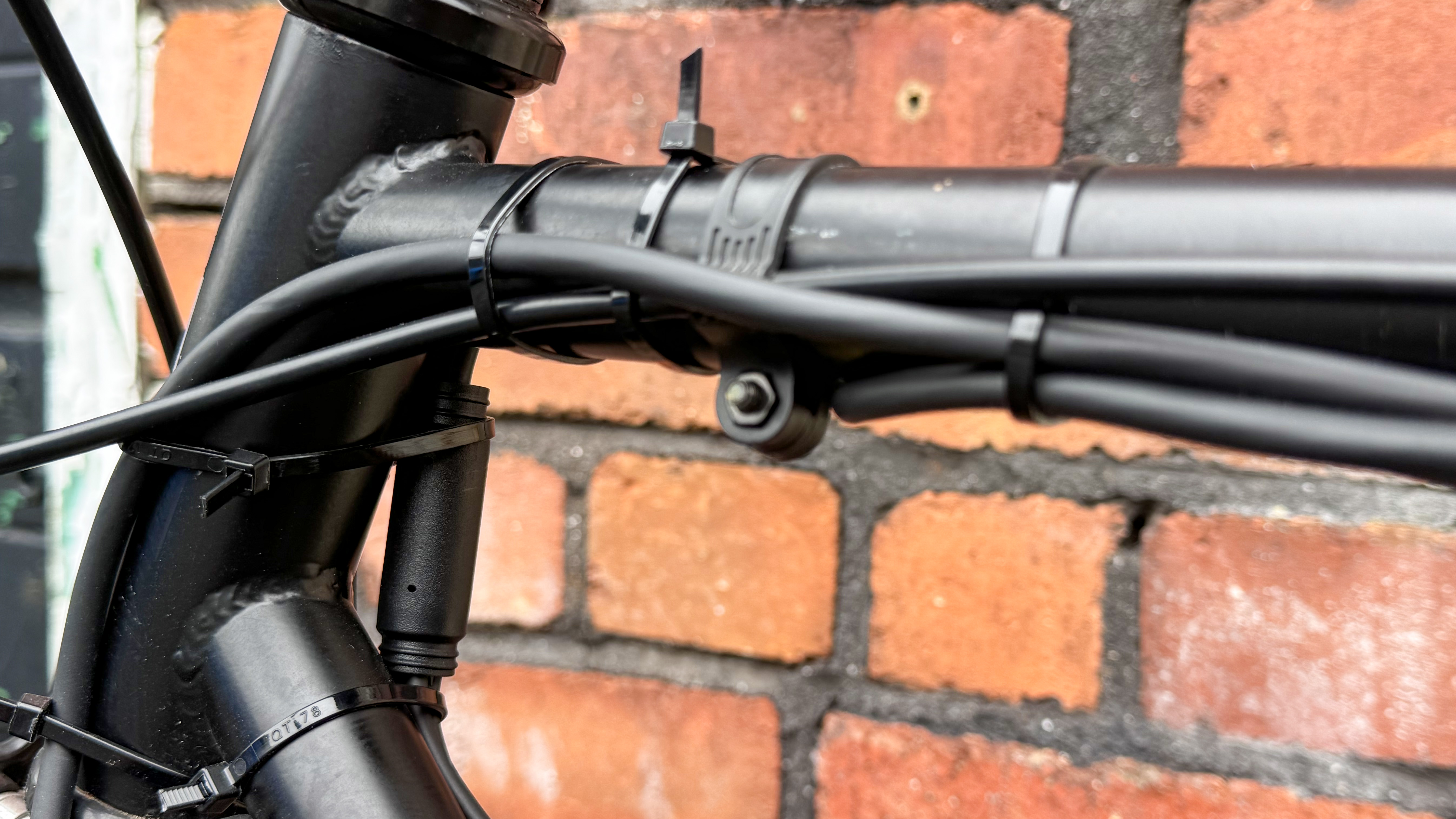
I could only attach the battery to the top rear section of my frame, which necessitated running wires in two directions: to the motor and display at the front, plus the pedal sensor below. There are cables everywhere, a multitude of cable ties holding everything together, plus a whopping great big battery mid-frame.
This is partly to do with my bike’s layout and mudguard positioning, but again, if I had the choice, I’d opt for the Swytch Air: the smaller battery is less intrusive, while the handlebar positioning allows for a cleaner single cable routing down the fork stem and lower frame to the pedal sensor. As we noted in our Swytch Go review, though, for many, the benefit of keeping your handlebars free for mounting lights or other accessories may be more important, just not for me.
Is the Swytch Go it worth it?
Absolutely! I definitely could’ve gotten fitter and started to appreciate my single-speed without pedal assist, but the Go helped remove some stigma and made the prospect of cycling enjoyable. That’s objectively a good thing. I can put aside the mass of wires and the headache of lugging around the battery, because at $349, the Go is a comparatively affordable way into electric bikes, so a couple of minor drawbacks are easy pills to swallow.
In fact, the Swytch Go has done its job too well. I’ve found myself using pedal assist less and less. I still use my bike, but I’ve been on a fitness kick for a couple of months now, have built up some strength and am relishing the challenge of bicycling for fitness. I’m no spandex-clad Specialized road warrior (yet), but everyone has to start somewhere. It’s weird to think I have an e-bike to thank for getting me into actual cycling and helping me get fit, but it’s true, so I owe the Swytch Go a thank you.
More from Tom's Guide

Peter is a Senior Editor at Tom's Guide, heading up the site's Reviews team and Cameras section. As a writer, he covers topics including tech, photography, gaming, hardware, motoring and food & drink. Outside of work, he's an avid photographer, specialising in architectural and portrait photography. When he's not snapping away on his beloved Fujifilm camera, he can usually be found telling everyone about his greyhounds, riding his motorcycle, squeezing as many FPS as possible out of PC games, and perfecting his espresso shots.
